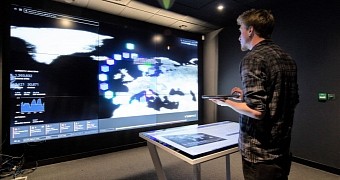Microsoft and Darktrace plan to work together on developing new ways to protect businesses from increasingly sophisticated threats such as ransomware.
Darktrace has announced a new partnership with Microsoft. The Cambridge-based firm and the tech behemoth plans to increase security and focuses on automatically detecting threats, particularly those delivered via malicious emails, under the terms of the agreement.
Darktrace, a cybersecurity company founded in 2013, has been at the forefront of developing artificial intelligence that detects and responds to suspicious activity and threats.
Darktrace and Microsoft partner up to develop new ways to detect and protect against increasingly sophisticated attacks, such as ransomware, which last week crippled a major U.S. gas pipeline.
Clare Barclay, chief executive of Microsoft UK, stated that “As cyberattacks become increasingly sophisticated, AI is adding a deeper level of protection in detecting these threats,”
“The partnership between Microsoft and Darktrace will help keep organisations secure, enabling them to focus on their core business and customers.”
The collaboration focuses on email security, streamlined security workflows and seamless data integration
The joint effort on these three key areas will be after Darktrace's technology and Microsoft's Azure cloud are better integrated.
Antigena Email, Darktrace's AI email solution, is hosted on Microsoft Azure and protects workplace inboxes from a variety of threats.
For threat detection alerts, Darktrace technology will be integrated with Azure Sentinel, a security information and event manager (SIEM) platform, and Microsoft Defender for Endpoint.
Email threats are becoming more complex and difficult to combat, according to Dan Fein, director of email security products at Darktrace.
“As these attacks get more sophisticated, employee education and awareness are not enough. The answer lies in technology,” Fein explained.
“With a dynamic understanding of the business, cyber AI detects subtle indicators of attack and stops novel threats on the first encounter. This capability is crucial in an era where it is impossible to predict where the next attack will come from or what it will look like.”

 14 DAY TRIAL //
14 DAY TRIAL //